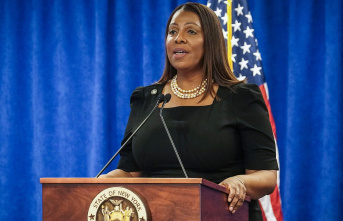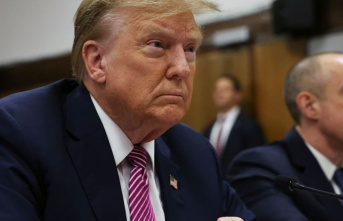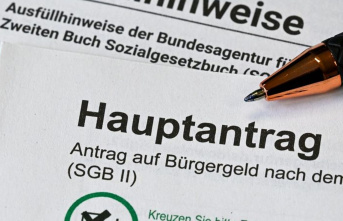Beijing is trying to be a peacemaker: China's President Xi Jinping traveled to Russia on Monday with the hope of a breakthrough in the Ukraine conflict. Xi, who has just been re-elected to a third term, is pushing for a bigger role for China on the international stage. In the Middle East, Beijing recently brokered the resumption of diplomatic relations between rival regional powers Iran and Saudi Arabia - a coup Xi now hopes to repeat.
Rumors of a first phone call with Ukrainian President Volodymyr Zelenskyy since the start of the Russian invasion have fueled hopes in western capitals that the Chinese president's three-day visit to Russia could lobby Kremlin chief Vladimir Putin to end the bloody invasion of Ukraine to stop. Chinese foreign ministry spokesman Wang Wenbin said the country will play "a constructive role in promoting peace talks."
"Ending the war is everyone's desire, since Europe has so much to lose and the United States may not be able to support Ukraine for as long as they think," said Wang Yiwei, director of Beijing Renmin University's Institute of International Affairs .
Beijing is a key partner of the Kremlin and has long tried to present itself as a neutral party in the conflict. But the Chinese government refuses to condemn Russia's invasion of Ukraine and has sharply criticized Washington's support for Kiev. That is why Western leaders have accused Beijing of giving Moscow diplomatic backing for the attack on Ukraine.
"Beijing has done remarkably little to promote peace in Ukraine, since any credible effort would require putting pressure on Russia, or at least pointing the finger directly at Russia," said Elizabeth Wishnick, senior Chinese foreign policy expert at the US -American Montclair State University. According to Wishnick, Xi's visit to Moscow is intended to show all the support he can give to his strategic partner, other than the aid that sanctions would trigger.
In February, China published a twelve-point position paper in which the country called for dialogue in the Ukraine conflict and for respect for the territorial sovereignty of all countries. Beijing has also touted its Global Security Initiative (GSI), which aims to "promote lasting peace and development." Both papers have been criticized in the West for their lack of practical solutions.
China's recent diplomacy surrounding the war in Ukraine appears to be an attempt by Beijing to highlight the GSI and "build momentum for its foreign policy and renewed engagement in the world," says scholar Ja Ian Chong of the National University of China Singapore. According to him, the content of China's proposals at the meetings with Russian and Ukrainian leaders will ultimately show whether China is really stepping up its efforts for peace.
Beijing's attempts to present itself as an international mediator also played a part in the deal between Saudi Arabia and Iran. It was later revealed that Xi had offered himself as a "bridge" between the rivals. As a result, China is also questioning Washington's long-standing role as an external puller in the Middle East.
The mediation of the agreement serves to portray China as a global player committed to "peace and cooperation" and opposed to "Washington's allegedly destabilizing actions," says Audrye Wong, a political scientist at the University of Southern California.
However, according to Wang Yiwei, reaching an agreement in the Ukraine conflict will be more difficult due to China's limited influence on Russia and US support for Kiev. However, Beijing could help bring about an armistice similar to the agreement to end the Korean War in 1953 - which would stop hostilities but postpone issues of territorial sovereignty until later.
For Wishnick, on the other hand, it is "unlikely" that Ukraine would accept China as a mediator, as it is not seen as "neutral or impartial". "Xi may be keen on diplomatic success, but I just don't see any on the horizon in Ukraine," she says. "Neither side is willing to give up hope of territorial gains on the battlefield now."











